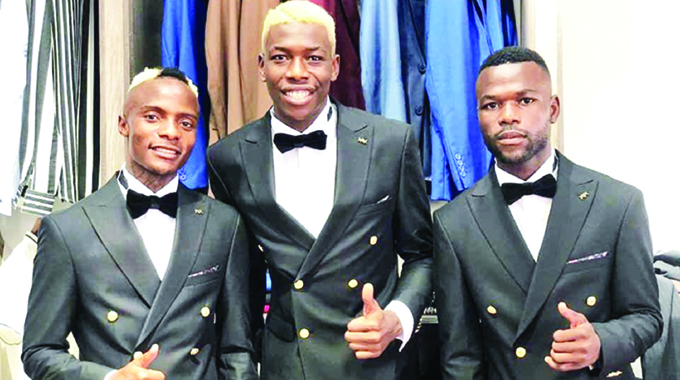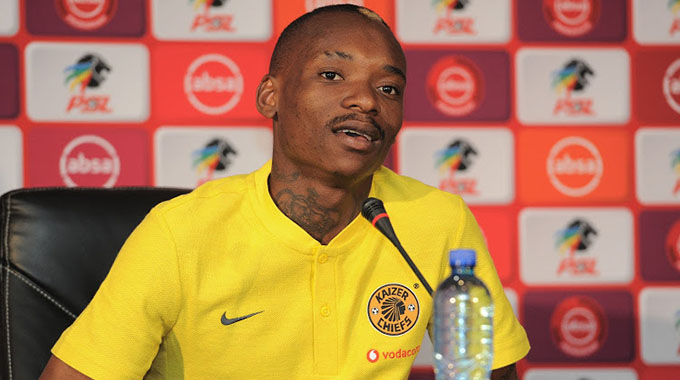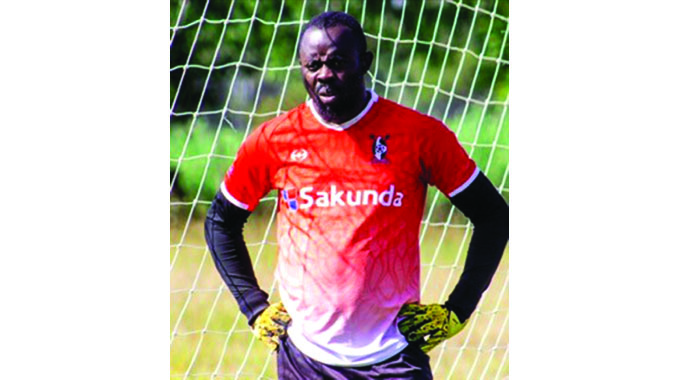In the shadow of chaos, confusion, buoyant Bosso finally came of age

Robson Sharuko Senior Sports Editor
IN the shadow of chaos and confusion, the country’s oldest football club finally came of age and, for the first time since its establishment 64 years earlier, became domestic league champions.
This year marks 30 years since Highlanders finally found a way to be champions.
Since then, Bosso have taken their tally to seven titles and, comparatively, within that period, only their biggest rivals, Dynamos, have won more, after taking home nine league titles in the past three decades.
CAPS United, part of the Big Three family, are third with four league titles in the past 30 years while FC Platinum, who have become the dominant force in recent years, have three league titles – all of them won in the past three seasons.
A similar success story this year for the Zvishavane-based side will thrust them into the elite company of DeMbare and Bosso, the only two clubs who have won four straight league titles on the domestic front.
The Glamour Boys have even done that twice, winning four league titles on the spin between 1980 and 1983 and then, once again, in 2011 and 2014 under the guidance of coach Callisto Pasuwa, the only gaffer to achieve such a feat on the domestic front.
Amazulu, Monomotapa, Gunners, Motor Action, Black Aces and Chicken Inn have won the trophy once, in the past 30 years and only one of them, the Gamecocks, are still standing with others having collapsed along the way.
By the time Bosso finally won their first league title, 20 years ago, DeMbare had already won a dozen league championships in 1963, 1965, 1970, 1976, 1978, 1980, 1981, 1982, 1983, 1985, 1986 and 1989.
But, for the Highlanders family, 1990 represents that golden moment which, despite the passage of time, the changing seasons and the ravages of climate change, simply doesn’t fade away. There are moments, in football, that define a club and there are seasons, in this game, which define a team.
For Bosso, theirs came 30 years ago.
In a landmark season for Highlanders in 1990, they didn’t only win their maiden league title but they showed they were the best team on the domestic football landscape by clinching League and Cup double – only the third side back then, to achieve such a feat, since Independence.
And, as if the football gods were smiling on them, Bosso’s moment of triumph, in the league, came with a sweet 2-1 win over Dynamos at Barbourfields, completing a double over their biggest rivals.
The reverse match had also ended in a 2-1 win for Highlanders at Rufaro with the match, forever, remembered for an error by Henry Chari. The turnover of possession provided the sequence of events which ended with Peter Ndovu gaining possession, taking three paces and unleashing a thunderbolt, from distance, which goalkeeper Peter Fanwell never saw.
Until then, the Glamour Boys, straight from winning their seventh title in the ‘80s, a decade they dominated as they just failed to win the championship three times, were unbeaten in the league on June 17, 1990, when they hosted Bosso.
But, that unbeaten run was smashed by the beast from the south and, by the time Highlanders completed a league double over Dynamos at Barbourfields, the celebrations for their first league championship could begin for Bosso.
Having won the ZIFA Cup, on October 28, 1990, it meant Bosso followed in the footsteps of Dynamos (1985 and 1989) and Black Rhinos (1984) to win a League and Cup double.
That Bosso team lost only once all season and conceded just three goals, at home at Barbourfields, during their entire campaign in the league.
‘‘We deserved to win the championship as we put in a lot of work in the organisation of our coaching department and the team as a while,’’ said the then Bosso team manager, Lawrence ‘‘Lofty’’ Phiri, one of the club’s legends.
‘‘Our best years, in terms of winning Cup competitions, were in 1985 and 1987 but we were also not far behind the leading pack in the race for the championship.
‘‘In previous seasons, we started badly, and picked up late but, by then, we would have lost a lot of points and we could not catch up.’’
‘‘Since 1987, we have been retiring some of our old players and we were hoping that the young players we were using would take a much longer time to adjust to the rigours and demands of top-flight football.
‘‘But, luckily for us, most of the young players just fitted in and we found ourselves getting the results we thought we would get next year.’’
Some of the players who powered Highlanders to glory were Peter Nkomo, Mercedes Sibanda, Lazarus Mwambopo, Amin Soma-Phiri, Fanuel Ncube, Rahman Gumbo, Adam Ndlovu, Peter Ndlovu, Alexander Maseko, Dumisani Nyoni and Makwinji Soma-Phiri.
Bosso’s landmark triumph came at a time of turmoil in domestic football.
Gibson Homela, the then Zimbabwe Saints coach, was attacked by his club’s fans, the game was still divided by how to deal with the life ban that had been imposed on Bosso star, Mercedes Sibanda, for assaulting a referee.
In the mayhem, CAPS United defender Tobias Sibanda was also attacked by Dynamos hooligans in a toilet at the National Sports Stadium and Blue Line Aces defender Charles Kaseke was assaulted by a mob at a restaurant in Highfield.
The Glamour Boys were split into two camps, the Glamour Boys officials even feared for their safety they all stayed away from the Natbrew Cup draw and Angirayi Chapo, Eddie Muchongwe, Ernest Chirambadare and Chari were suspended.
ZIFA were forced to apologise to Bosso, for the way the referee handled their Independence Cup final defeat, at the hands of DeMbare.
The High Court even intervened, in the chaos, with Justice Chambakare issued a provisional order quashing the ZIFA decision to bar two DeMbare officials, Simon Makaza and Patrick Dick, from participating in all football-related activities in the country.
Makaza and Dick, part of the officials who were battling for the control of the Glamour Boys, had been suspended from domestic football for leaving behind a ZIFA official, who was supposed to be the head of delegation, during DeMbare’s trip to Sudan for a Cup of Club Champions match against Al Hilal.
Nine Bulawayo-based Warriors also ended up stranded in Harare, after a training camp, with the association have failed to provide them with their transport allowances for their return home. But, amid all that gloom, Bosso found a way to clear the final hurdle, when it comes to the league championship.
And, 30 years later, there are many within their establishment who argue that this was the turning point in the history of their club.








Comments